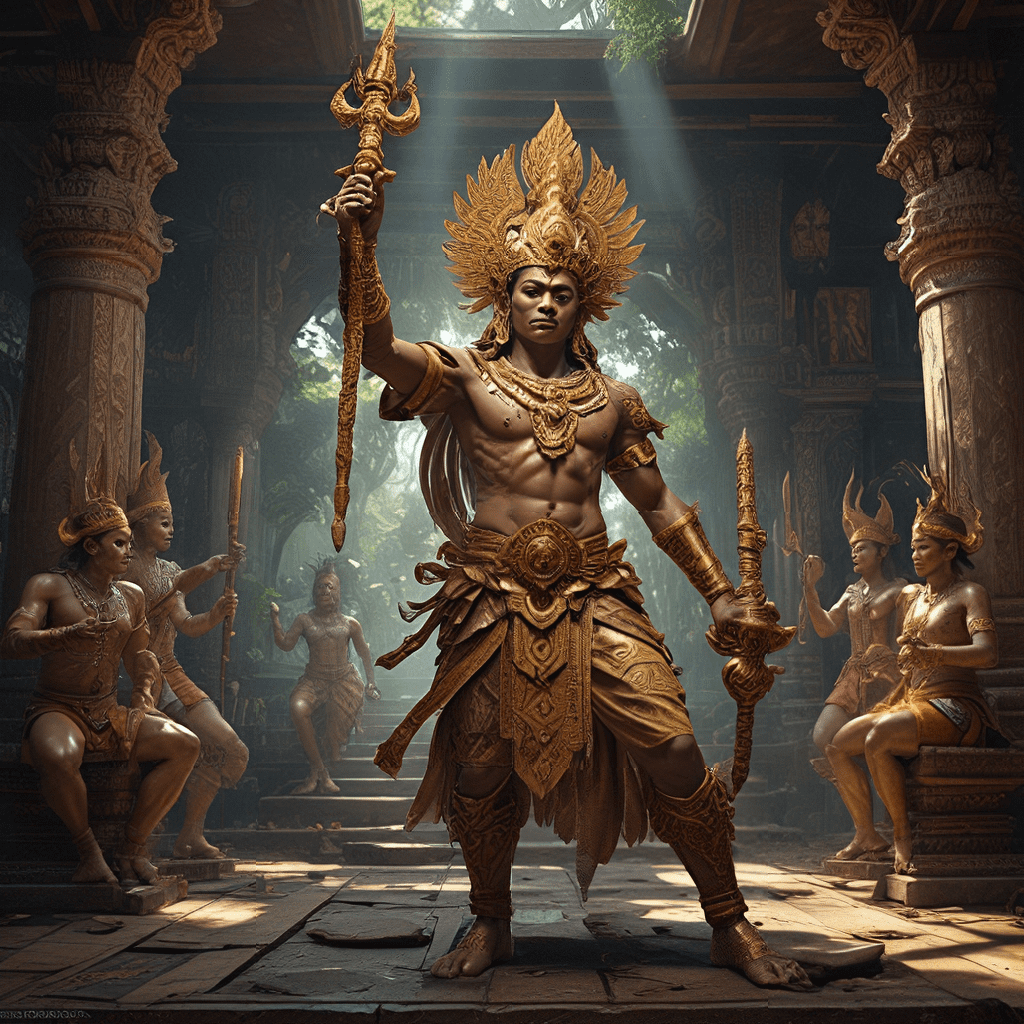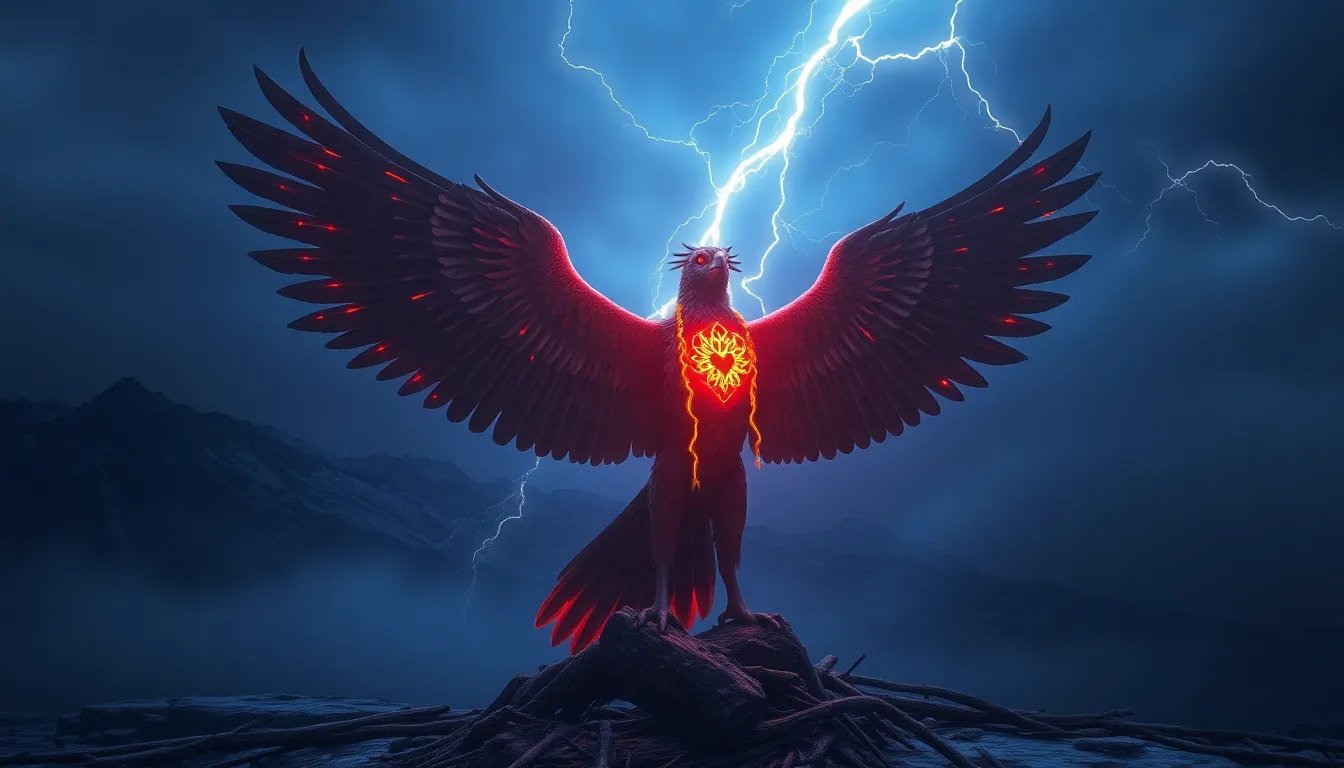Indonesian Mythology: A Tapestry of Harmony and Balance
Indonesian mythology is a rich and vibrant tapestry woven with stories, beliefs, and practices that have been passed down through generations. At its core lies a profound understanding of harmony and balance, reflected in the intricate web of relationships between humans, nature, and the divine. These myths offer a unique lens through which to explore the diverse cultural landscape of Indonesia, revealing a deep connection to the land, its people, and the forces that govern the universe.
The Cosmic Dance of Tri Hita Karana
One of the most fundamental concepts in Indonesian mythology is Tri Hita Karana, a philosophy that emphasizes the interconnectedness of three essential elements: harmony with nature (Parahyangan), harmony with fellow humans (Pawongan), and harmony with the spiritual realm (Palemahan). This concept serves as a guiding principle for living a balanced and fulfilling life, where every action and interaction contributes to a harmonious existence.
Tri Hita Karana manifests in various aspects of Indonesian life, from traditional rituals to everyday practices. For example, the Balinese concept of "Subak," a system of water management, demonstrates the importance of harmonious cooperation between humans and nature. This intricate system ensures equitable distribution of water for irrigation, reflecting the belief that balance is essential for the well-being of both humans and the environment.
The Divine Guardians: Dewata and Bhuta
Indonesian mythology is populated by a pantheon of deities known as "Dewata," who embody various aspects of the natural world and human life. These deities, often associated with specific regions, elements, or qualities, are believed to play a crucial role in maintaining cosmic balance. Alongside the Dewata are the "Bhuta," supernatural beings often associated with nature, ancestors, or spirits. While the Dewata represent benevolent forces that protect and guide humanity, the Bhuta can be both helpful and harmful, depending on how they are treated and respected.
The presence of these divine beings underscores the interconnectedness of the physical and spiritual realms in Indonesian mythology. It emphasizes the importance of maintaining harmony with both the Dewata and the Bhuta, through appropriate rituals, offerings, and respectful behavior. For example, the offerings made to the spirits of the mountains, forests, and rivers are seen as a way to appease these powerful beings and ensure their continued protection and favor.
The Story of Batara Guru and Dewi Uma: A Marriage of Power and Compassion
Among the most prominent figures in Indonesian mythology are Batara Guru, the supreme god, and Dewi Uma, his consort. Batara Guru is often depicted as a powerful and wise ruler, representing the masculine energy that governs the universe. Dewi Uma, on the other hand, embodies compassion, wisdom, and feminine energy, balancing her husband's authority with her nurturing and caring nature. Their union symbolizes the essential complementarity of masculine and feminine principles, highlighting the importance of balance and harmony within the divine realm.
The story of Batara Guru and Dewi Uma not only reveals the intricacies of power and responsibility within the divine realm but also highlights the importance of compassion and understanding in maintaining cosmic balance. It reminds us that even the most powerful figures must be guided by wisdom, kindness, and the desire to nurture and protect the world.
The Significance of the “Ratu” in Indonesian Mythology
The "Ratu," meaning queen or princess, plays a significant role in Indonesian mythology. These figures often represent the embodiment of beauty, grace, and wisdom. They are often associated with particular natural elements, like the moon or the ocean, and are revered for their mystical powers. The stories of these Ratu often emphasize the importance of feminine virtues like compassion, nurturing, and the ability to bring harmony to chaotic situations.
One of the most prominent Ratu figures is Dewi Sri, the goddess of rice and fertility. She is revered for her role in ensuring plentiful harvests and prosperity. Dewi Sri is often depicted with rice stalks and adorned with beautiful flowers, symbolizing the bountiful nature of the earth and the importance of nurturing and respecting the land. The stories surrounding Dewi Sri highlight the importance of balance and harmony in the world of nature and agriculture.
The Role of Nature Spirits and Ancestral Beings
In the rich tapestry of Indonesian mythology, nature is not merely a backdrop, but a living, breathing entity. Trees, mountains, rivers, and even the ocean are believed to be inhabited by spirits or "makhluk halus," who act as guardians and protectors of their domain. These nature spirits are often associated with specific locations or natural phenomena, like the wind, rain, or fire. They are often depicted as benevolent beings, but they can also be unpredictable and powerful, demanding respect and proper treatment.
Ancestor worship is another significant aspect of Indonesian mythology. It is believed that the spirits of the deceased remain connected to the living and can influence their lives, both in positive and negative ways. These ancestral spirits are often revered as protectors and guides, and their blessings are sought for good fortune and prosperity. Families will often hold ceremonies and make offerings to their ancestors to honor their memory and ensure their continued support.
The importance of respecting nature spirits and ancestral beings is emphasized in various folk tales and myths. For example, the story of the "Sundel Bolong," a vengeful spirit of a woman who died during childbirth, warns against disrespecting the dead. Similarly, the myth of the "Bujang Ganong," a mischievous forest spirit, teaches the importance of being respectful and mindful of the natural world.
Mythological Narratives as a Guide for Living in Harmony
Indonesian mythology is not merely a collection of stories but a living guide to living a life in balance and harmony. The myths and legends, passed down through generations, offer practical advice and ethical principles for navigating the complexities of human existence. They emphasize the importance of respecting nature, honoring ancestors, and living in community with others.
For example, the Balinese myth of "Ida Batara Kala," the god of time and fate, teaches the importance of living in the present moment and accepting the natural flow of life. The story of "Ratu Gede," the queen of the mountain, emphasizes the need to protect the environment and live in harmony with the natural world. These myths serve as a reminder that our actions have consequences and that we are responsible for maintaining a balanced and harmonious existence.
The Concept of “Ibu Pertiwi” – Mother Earth as a Living Entity
"Ibu Pertiwi," meaning "Mother Earth," is a central figure in Indonesian mythology. She is revered as a nurturing and benevolent deity who provides for all living beings. The concept of Ibu Pertiwi embodies a deep respect and reverence for the Earth, recognizing its importance as the source of life and sustenance.
The Earth is viewed as a living entity, worthy of care, protection, and respect. This concept influences the way Indonesians view their relationship with the environment. It underscores the importance of sustainable practices, resource conservation, and a deep connection to the land. This deep reverence for the Earth is reflected in various traditions and practices, including agricultural rituals and the use of natural resources.
The Importance of Rituals and Offerings in Maintaining Balance
Rituals and offerings play a crucial role in maintaining harmony and balance in Indonesian mythology. These practices are seen as a way to honor the gods, spirits, and ancestors, and to gain their favor. They are also used to appease these powerful beings and to ensure continued protection and prosperity.
The types of rituals and offerings vary depending on the specific culture and tradition. Offerings can range from simple offerings of food and incense to elaborate ceremonies involving music, dance, and prayers. For example, in Bali, offerings are made daily to the spirits of the land, while in Java, rituals are performed to honor ancestors and to ensure good fortune in business and family affairs.
The act of offering is not merely a symbolic gesture; it is a way of expressing gratitude, respect, and the desire to maintain a harmonious relationship with the spiritual realm. These rituals and offerings are seen as essential for maintaining a balance between the human world and the divine realm, ensuring continued well-being and prosperity.
Contemporary Interpretations of Indonesian Mythology in Modern Society
Indonesian mythology continues to play a significant role in modern society, inspiring art, literature, and cultural practices. The stories and beliefs have been adapted and reinterpreted to reflect contemporary concerns and issues. For example, the concept of Ibu Pertiwi has been embraced by environmental activists who use it to advocate for the protection of the environment and sustainable practices.
Contemporary artists and writers often draw inspiration from Indonesian mythology, exploring themes of harmony, balance, and the interconnectedness of all things. The stories and characters are used to create new narratives that reflect the challenges and opportunities of the modern world. This ongoing engagement with Indonesian mythology ensures that these ancient stories remain relevant and meaningful for future generations.
F.A.Q
Q: What is the main concept underlying Indonesian mythology?
A: The main concept underlying Indonesian mythology is harmony and balance, expressed through interconnectedness between humans, nature, and the divine.
Q: How does Indonesian mythology view nature?
A: Indonesian mythology sees nature as a living entity, deserving of respect and care, with spirits inhabiting various natural elements and acting as guardians.
Q: What is the significance of "Ibu Pertiwi" in Indonesian mythology?
A: "Ibu Pertiwi," meaning Mother Earth, represents a nurturing deity who provides for all living beings, emphasizing the importance of respecting and caring for the environment.
Q: How do rituals and offerings play a role in Indonesian mythology?
A: Rituals and offerings are essential for maintaining harmony and balance, expressing gratitude, respect, and the desire to maintain a harmonious relationship with the spiritual realm.
Q: How is Indonesian mythology relevant to modern society?
A: Indonesian mythology remains relevant, inspiring art, literature, and cultural practices, and guiding contemporary concerns, like environmental protection and sustainable practices.



